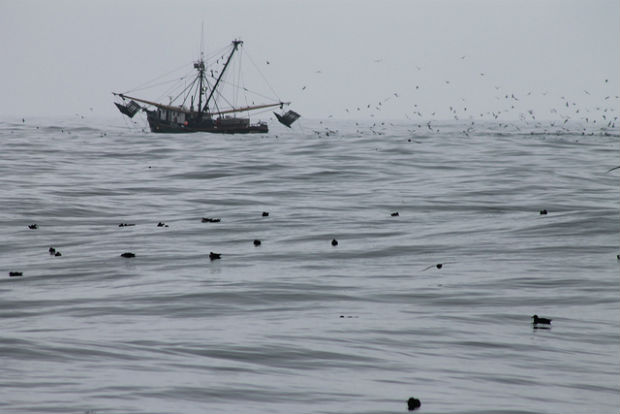Author's note: This opinion piece was first published in The Olympian on August 20. At the end, we have added current information about upcoming hearings on proposed oil terminals, and ways to make our voices heard. Together we can ensure a vibrant future, and steer our state away from becoming a fossil fuel highway.
The dangers of oil trains have understandably dominated headlines about proposed oil terminals in Washington state. As a long-time crab fisherman out of Grays Harbor, I’m very concerned about another risk that has so far gotten far less attention yet deserves equal time in the public spotlight: the consequences of a major oil spill for our local economy, environment and way of life.
In 2014 Washington residents took an estimated 4.1 million trips to the Washington Coast spending $481 million, according to a Surf Rider Foundation study. More than one-third of those visits were to Grays Harbor County to enjoy all our coastal waters have to offer.
The state is expected to soon release for public comment a draft environmental impact statement (DEIS) for the first two of three crude oil terminal proposals in Grays Harbor.
No crude oil presently moves through Grays Harbor. Yet, if the terminals are built, oil tanker and oil barge traffic is expected to increase vessel visits by 450 percent, adding 750 oil-vessel bar transits annually. The Grays Harbor shipping channel is narrow, shallow, subject to strong current flows, and has limited staging area for ships and tugs.
The Washington Department of Fish and Wildlife stated, “Grays Harbor is an area particularly sensitive to the adverse effects of oil spills.” The introduction of such huge volumes of oil transport and oil vessel traffic in an area not suited to them in the first place is inviting disaster. Grays Harbor is simply a poor choice for oil terminals.
Between trains, tanks, ships and barges, up to 115 million gallons of oil will be in Grays Harbor at any one time. We know from disasters like the Deepwater Horizon in the Gulf of Mexico and Exxon Valdez in Alaska that one major oil spill can be devastating: contaminating coastlines, killing fish and wildlife, destroying livelihoods and ruining property values. The damage can last for decades, even generations.
One major spill is one too many. The proposed oil terminals threaten not just Grays Harbor, but our state’s entire coast, a place cherished by millions. Those who care must engage in the DEIS comment process to tell our state leaders to put our waterways, our jobs, and our communities ahead of oil companies’ relentless pursuit of expanding markets and profits at our peril.
How to get engaged:
The time is now to speak up against the proposed crude oil export terminals in Grays Harbor at one of the two public hearings that have been scheduled on Oct 1 and Oct 8.
October 8 in Aberdeen
Public hearings are from 1:30-4:30 pm & 6:00-9:00 pm at D&R Theater, 205 South I St.
Rally is at 5:00 pm at Zelasko Park, 200-252 S. F St, Aberdeen.
October 1 in Elma (If you can’t attend the rally and hearing in Aberdeen)
Public hearings are from 1:30-4:30 pm & 6:00-9:00 pm at Satsop Business Park, Flextech Building, 100 Technology Way, Elma.
Please RSVP if you plan to attend one of the hearings. If you are coming from afar, the Stand Up to Oil coalition would be happy to help arrange transportation for you.
If you can’t make it to one of the public hearings in Grays Harbor, you can sign this petition to Governor Inslee today!
For more information, visit: www.standuptooil.org or email us atinfo@standuptooil.org.

